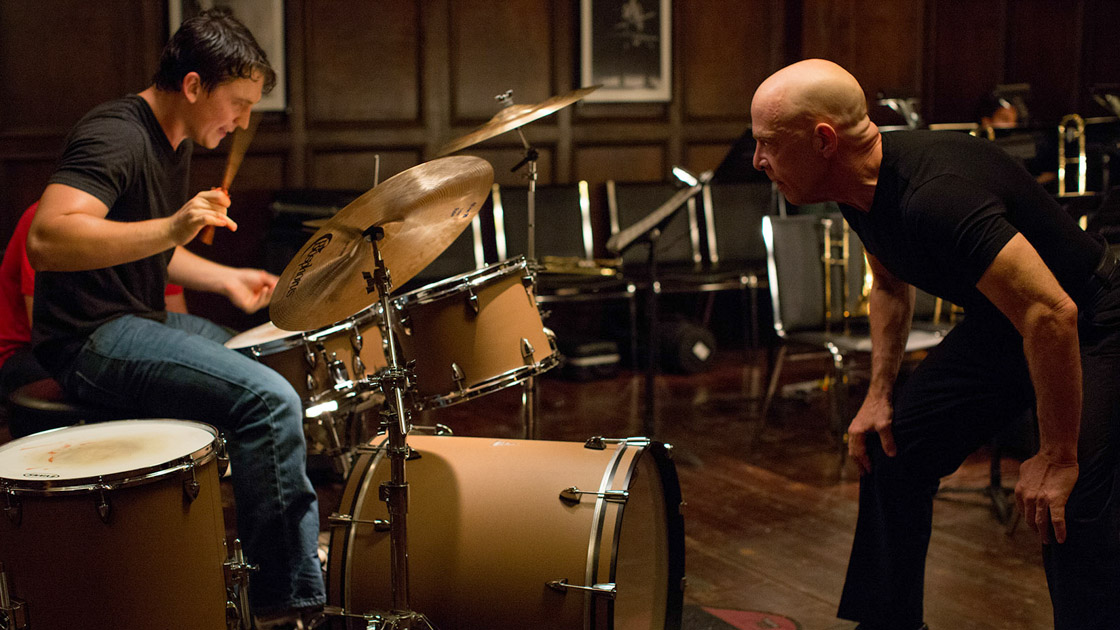Chatroom
Directed by Hideo Nakata
Written by Enda Walsh
UK, 2010
Is he a kick-ass, a jackass, or just another middle-class brat with morbid obsessions? Hideo Nakata’s new psychological thriller stars Aaron Johnson, who was last seen as the green-suited wannabe superhero in Kick-Ass. Now he plays a master of manipulation who preys on the weak from the safety of his bedroom. The trappings may be 21st-century, but this web of malice, cyber-bullying and teenage ennui also seems horribly familiar.
William (Aaron Johnson) is a sulky, wild-haired youth, whose parents disapprove of his chatroom activities and want him to engage with the real world. It’s more  than just routine concern – the family has been undergoing therapy with a smug counsellor lady, who mistakenly thinks she’s cured William. One obvious source of resentment is Ripley — the name of his well-adjusted elder brother and also the eponymous hero of the successful children’s books penned by his JK Rowling-lookalike mother (Megan Dodds).
than just routine concern – the family has been undergoing therapy with a smug counsellor lady, who mistakenly thinks she’s cured William. One obvious source of resentment is Ripley — the name of his well-adjusted elder brother and also the eponymous hero of the successful children’s books penned by his JK Rowling-lookalike mother (Megan Dodds).
Online it’s a very different story. The smooth, plausible and well-coiffed William escapes into his “Chelsea Teens!” chatroom, where he offers other disaffected youths a chance to vent their anger. There’s model Eva (Imogen Poots), who’s fed up with snobby bitches she hangs out with; Emily (Hannah Murray) is embarrassed by her social climbing parents; and Mo (Daniel Kaluuya) who has the hots for his best mate’s under-age sister. Jim (Matthew Beard) is the one with real problems. He’s on anti-depressants and admits to hating himself.
Chatroom’s vision of London may be rather drab, but the online spaces are brought vividly to life by Nakata, his cinematographer Benoit Delhomme, and the production design team. In adapting his own 2005 play Enda Walsh (Hunger), has had to open out the action to encompass the parallel worlds in which William and his new “friends” operate. (The alternative, presumably, would have been mind-numbingly tedious scenes of people typing, clicking and gazing slack-jawed at their screens.)
There are recurring shots of a long, brightly lit corridor, with garish carpeting and artfully distressed green walls, making us feel we’ve dropped into a fashionably shabby hotel. Doors lead off into the characters’ own spaces, where the decor reflects their personalities. Eva’s room has a trendy 4-poster bed, balloons and a non-stop party vibe. Emily’s idea of being a party animal is rather different: posters of her political role models, including Condoleezza Rice and Angela Merkel. The “Chelsea Teens!” chatroom has a 70s retro feel, with five chairs, an old TV and huge windows in the floor and ceiling. It’s this space that we return to most often, the camera circling round the occupants as they spill their secrets.
What follows is a mix of satire and psychological drama that may frustrate those who enjoyed Nakata’s superior brand of supernatural horror in Ring and Dark Water. I think the underlying humour is what saves the rather underwritten scenes outside the chatroom, especially those involving William and his ineffectual parents. Nicholas Gleaves and Megan Dodds fail to inject much life into these bland figures of parental authority, so perhaps it helps that we (like William) end up seeing them as rather contemptible.
The early exchanges in which the jaded teenagers compare notes on their disappointing friends and parents reminded me of malevolent high-school movies like Heathers and Cruel Intentions. Eva jokes about her dad’s prostate cancer bringing the family together: “That malignant growth in his arse was the happiest time of our lives.” But when Emily is persuaded to smear shit on her Mum’s car, or William hacks into the model agency’s computers, the results are more silly than sinister.
Aaron Johnson manages to remain both sympathetic and very watchable in his dual roles of damaged teenager and duplicitous predator. There’s a telling moment when he morphs into the body of a  young girl to scare a paedophile out of Eva’s room. It’s a reminder of the ease with which the practised liar can go online and pretend to be something he’s not.
young girl to scare a paedophile out of Eva’s room. It’s a reminder of the ease with which the practised liar can go online and pretend to be something he’s not.
But despite William’s erratic behaviour and the clues about his dangerous addictions, you keep wondering when Chatroom is going kick into gear as a thriller. In fact, the other characters here turn out to be largely peripheral: the crux of the story is whether William can get inside Jim’s head and do some serious damage. When it does come, the revelation of Jim’s childhood trauma is convincingly acted by Matthew Beard and it makes his present vulnerability all too clear. He is to be the vehicle through which William realises his own suicidal fantasies.
The climactic scenes spill out into the real world again, with a frenetic chase through Camden Lock that feels rather jarring after all the carefully choreographed action in cyberspace. Before it reaches that point, you might find yourself wondering why these kids can’t just turn off their screens and get a life.
Nakata’s film boasts stylish visuals, some enjoyable moments of black humour and good performances from Aaron Johnson and Matthew Beard. It might tap into current anxieties about the hidden dangers of the internet, but in terms of pure suspense I’m not really convinced it kicks ass.
– Susannah Straughan




